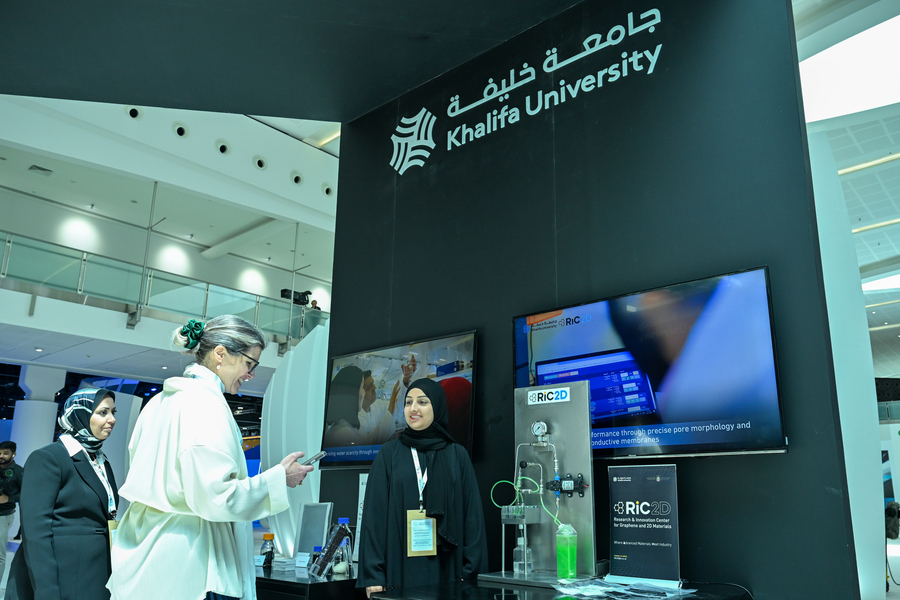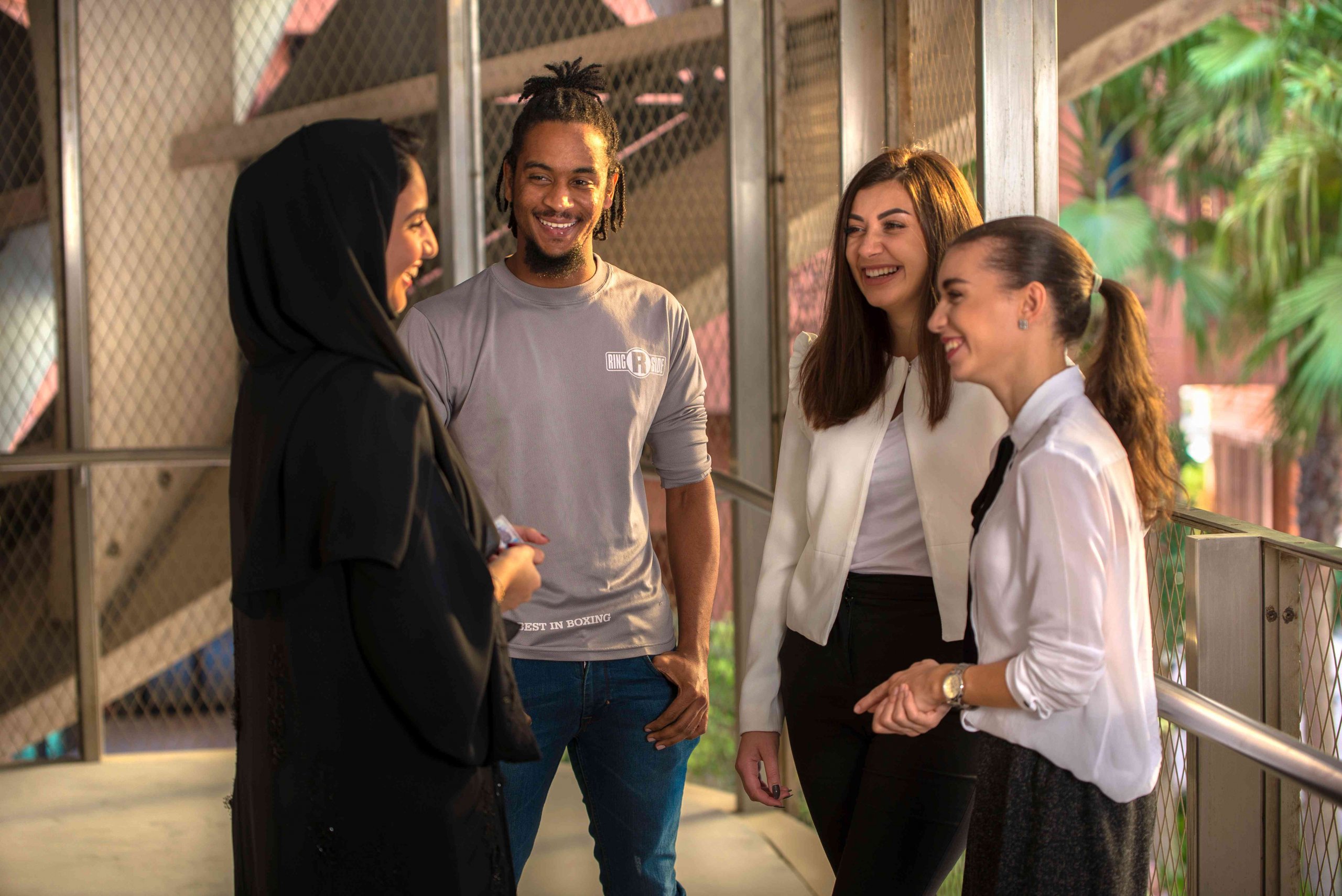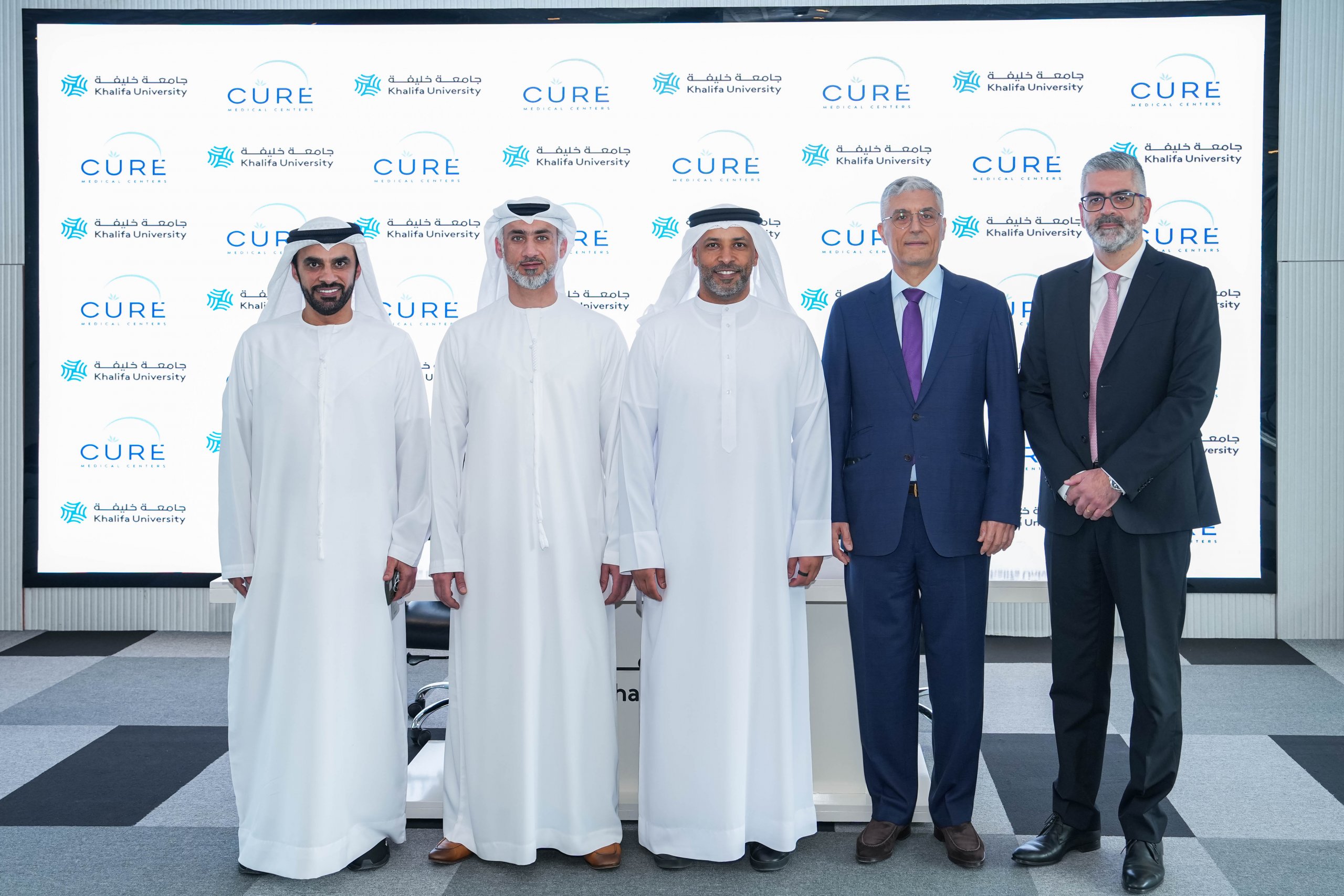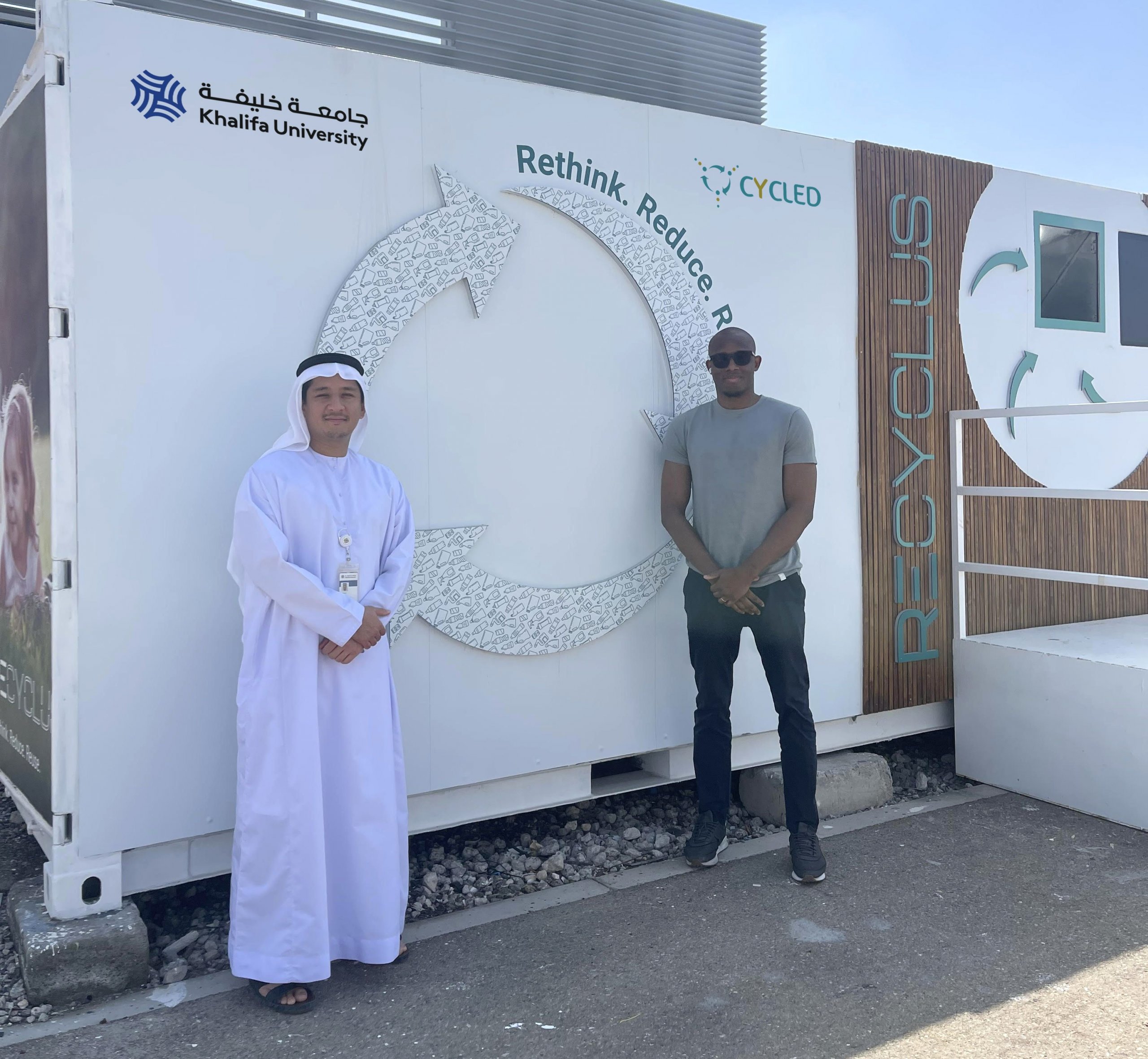Masdar Institute provides theoretical and practical experience for future scientists of the United Arab Emirates
Renewable energy projects to diversify energy sources and enhance energy security
Abu Dhabi-UAE: 30 January, 2012 – Dr Sultan Ahmed Al Jaber, CEO of Masdar and Chairman of the Executive Committee of the Board of Trustees of the Masdar Institute of Science and Technology (MI), commended Abu Dhabi’s Executive Council for approving the Institute’s budget for 2012. He explained that the move reflects the Executive Council’s keen interest in supporting the development of human capital amongst Emirati locals and enabling the development of a new generation of Emirati future scientists who specialize in the areas of renewable energy, clean technology and sustainable development.
“Abu Dhabi is evolving from a resource-based economy to a knowledge-based economy through research-driven institutions like the Masdar Institute. Nurturing future leaders in the science and technology spheres is a fundamental mandate of the Masdar Institute. This is essential to the UAE’s long-term plan of achieving sustained economic growth and social progress. Through these academic efforts, we seek to directly meet the needs of key target sectors and important stakeholders directly relevant to Abu Dhabi’s major investments.”
“More importantly, the Masdar Institute seeks new ways to instill practical applications in throughout the student’s life in at the Institute. This enables graduates to immediately integrate into the work field upon graduation. MI students are fully equipped to practically interpret their insights and ideas; providing value to both the public and private sector,” he added.
Such measures are facilitated by the Executive Council’s approval of Masdar Institute’s budget clearly demonstrate Abu Dhabi’s support for fostering research and development, as well as enhancing the acquisition of knowledge and skills in renewable energy technologies. In turn, the Masdar Institute represents the research and development nucleus of Masdar City.
Dr Al Jaber also commented on the Executive Council’s approval of the budget of the “Shams One” Concentrated Solar Power (CSP) plant in the western region of the Emirate of Abu Dhabi and the construction of the Sir Bani Yas onshore wind farm. He explained that these projects achieve a set of benefits, including prolonging the life of the UAE’s hydrocarbon economy through the adoption and implementation of a diverse energy mix.
Construction is currently in progress at the Shams One project site, the 100 MW Concentrated Solar Power (CSP) plant being developed in the Western Region of the Emirate of Abu Dhabi. Commercial operations on the plant are expected to begin in 2012. Shams One is set to be one of the largest CSP projects in the world and the first in the Middle East region. The project is owned by Shams Power Company, the entity that develops and manages the plant’s operations. It was established specifically for that purpose through a joint venture between Masdar (60%), TOTAL (20%) and Abengoa Solar (20%). The plant will contribute in securing renewable and clean energy in Abu Dhabi’s western region which will in turn help in the UAE’s sustainable socio-economic development.
Furthermore, Masdar City’s 10 MW solar farm has been operational for the past three years. Connected to the Abu Dhabi National Electricity Grid, the solar farm produces enough power to cover the energy needs of Masdar Institute and Masdar City residents and workers and feeds excess energy back into the grid. The project contributed in offsetting over 23.8 thousand tonnes of carbon emissions.
In addition, Masdar is also partnering with TDIC to develop an onshore wind farm on Sir Bani Yas Island, the natural reserve established by the late His Highness Sheikh Zayed Bin Sultan Al Nahyan. The wind farm will contribute to securing renewable and clean energy to cater for the sustainable development projects planned for on the island.
Dr. Al Jaber underscored how the support of the Executive Council to the renewable energy projects reflects the strategic vision of the UAE’s wise leadership, as it is the main catalyst to all aspects of economic and social development.
The Masdar Institute of Science and Technology, a home grown, independent, research-driven graduate-level university focused on advanced energy and sustainable technologies, is implementing significant measures in support of human capital development to enable the creation of a knowledge-based economy in the UAE.
Some of the distinct measures being implemented by Masdar Institute include post-graduate research activities through industry collaborations in various clean technology areas, outreach programs to foster students and young professionals into industry leaders of tomorrow, and dedicated special programs through inter-institutional partnerships that ensure raising awareness on the need to be innovative to create a highly competitive global-standard economy.
The driving force behind Masdar Institute’s research is its strategic relevance and benefit to the Abu Dhabi government and the industry. As part of its continuing endeavor, Masdar Institute has formed a working group with various units of Abu Dhabi Government’s investment arm Mubadala, including Abu Dhabi’s multifaceted renewable energy initiative Masdar, to align the research interests between the two organizations. Discussions have also been held with Etisalat, Abu Dhabi National Oil Company (ADNOC), the UAE Armed Forces, as well as other governmental and industry organizations on aligning Masdar Institute academic programs and research with these entities. A deal has already been signed with the Abu Dhabi-headquartered International Renewable Energy Agency (IRENA), which is awarding up to 20 scholarships at Masdar Institute.
More recently, Masdar Institute has entered into an agreement with Toyota Motor Corporation, the world’s leading automotive manufacturer to set up the Masdar Institute-Toyota Scholarship Program for conducting research on the advancement of low-carbon emission vehicle technologies, and a collaborative research deal with Masdar PV, a leading German-based manufacturer of photovoltaic films. An agreement with Siemens Energy Systems has also been signed on solar energy technology research and development to enhance the use of PV panels in the Middle East region. It has also signed a memorandum of understanding (MoU) with IRENA to support the developing of a publicly-accessible atlas of solar and wind resources.
Additionally, Masdar Institute engages with institutions such as Emirates Aluminum (EMAL), Abu Dhabi Company for Onshore Oil Operations (ADCO) as well as other organizations, through a number of mechanisms. Work is already under progress on the Sustainable Bioenergy Research Project (SBRP) with Boeing, Etihad Airways and Honeywell UOP.
Masdar Institute focuses on some of the strategic sectors that are pivotal to Abu Dhabi’s economic diversification. They include energy, petrochemicals, water, metals, aerospace, defense, biotechnology and telecommunications. These are in addition to renewable energy, clean mobility, sustainable cities, and the semiconductor industry.
Some of the areas the Institute aims to develop core capabilities include advanced materials, thermal-fluid sciences, water and environmental technologies, power systems, computational and information sciences, policy and economic modeling, engineering systems, microsystems, and chemical processes.
Moreover, the Institute is hosting a forum on ‘Bridging the Knowledge Economy’ in collaboration with Khalifa University, Zayed University (ZU), the United Arab Emirates University (UAEU) and the American University of Sharjah (AUS), to discuss ways to spur research and development investment, facilitate research and innovation capacity building and further strengthen entrepreneurship development. The event is being organized under the University Leadership Council (ULC) to bring together research universities, government agencies and private sector companies and identify potential investment opportunities through collaboration and long-term partnerships.
The University Leadership Council serves as a platform to engage academic, government and industry leaders and seek their support to develop human capital as well as research and innovation (R&I) capacity.
Realizing the need to develop indigenous capabilities, Masdar Institute is implementing the UAE National Foundation program, which enrolled a total of 55 Emirati students for the 2011/2012 academic year. This is in addition to the 71 UAE national students registered for the eight post-graduate programs. Foundation students who demonstrate excellent academic performance are also offered a two-week practical training course at the Massachusetts Institute of Technology (MIT), where they are exposed to courses on sustainable energy with hands-on training.
MI is mandated to provide students with the knowledge, skills and experience necessary for successful careers in industrial or academic roles in their chosen fields.
Established in collaboration with MIT in the US, Masdar Institute integrates theory and practice to incubate a culture of innovation and entrepreneurship, working to develop the critical thinkers and leaders of tomorrow. With its world-class faculty and top-tier students, the Institute also remains committed to finding solutions to the challenges of clean energy and climate change.






